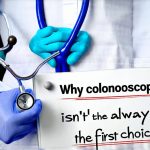Gastrointestinal (GI) conditions are incredibly common, impacting millions worldwide and ranging from mildly inconvenient to severely debilitating. Often, these conditions develop silently over time, making early detection crucial for effective management and potentially preventing serious complications. Proactive screening isn’t always about waiting for symptoms; it’s about identifying risk factors and utilizing available tests to gain insights into your digestive health before problems escalate. This approach empowers individuals to make informed lifestyle choices and collaborate with healthcare professionals on preventative strategies, significantly improving long-term outcomes.
The good news is that a growing number of accessible and non-invasive or minimally invasive tests can help identify potential GI issues in their earliest stages. These aren’t replacements for regular checkups with your doctor, but rather valuable tools to supplement those visits – particularly if you have family history, specific risk factors, or are experiencing subtle changes in your digestive patterns. Understanding what these tests entail, who should consider them, and how the results are interpreted is a significant step towards taking control of your gut health and overall well-being. This article will explore some key early screening options available today, emphasizing their role in preventative GI care rather than diagnostic confirmation.
Colon Cancer Screening: Beyond the Colonoscopy
Colon cancer remains one of the most preventable cancers, largely due to advancements in screening technologies. While colonoscopies are considered the gold standard, they aren’t the only option and can be daunting for some individuals. The goal of these screenings is to detect polyps – abnormal growths that can potentially develop into cancerous tumors – before they become malignant. Early detection dramatically increases treatment success rates and improves prognosis.
Several alternative options offer varying degrees of invasiveness and convenience. Fecal Immunochemical Tests (FIT) are a common non-invasive method, detecting hidden blood in stool samples, which can be an indicator of polyps or cancer. Stool DNA tests, like Cologuard, analyze stool for both blood and altered DNA associated with cancerous cells or polyps; they have higher sensitivity but also a slightly increased false positive rate. Flexible sigmoids are less comprehensive than colonoscopies, examining only the lower portion of the colon, and require some bowel preparation but are generally more comfortable.
The recommended screening schedule varies based on individual risk factors and family history. Generally, individuals over 45 should begin regular screenings. Those with a family history of colon cancer or polyps may need to start earlier and screen more frequently. Regular screening is paramount, even if previous tests have come back negative – it’s about consistent monitoring for changes. It’s important to discuss your personal risk factors and the most appropriate screening method with your physician to develop a personalized plan.
Understanding Helicobacter pylori (H. pylori) Testing
Helicobacter pylori is a bacterium that infects the stomach lining, often without causing immediate symptoms. However, chronic infection can lead to gastritis, peptic ulcers, and an increased risk of gastric cancer. Identifying and treating H. pylori infections early is crucial for preventing these complications. Several tests are available:
- Urea Breath Test: This non-invasive test involves swallowing a special liquid containing urea. If H. pylori is present, it breaks down the urea, releasing carbon dioxide that can be detected in your breath. It’s considered highly accurate and convenient.
- Stool Antigen Test: This test detects H. pylori antigens (proteins) in a stool sample. Like the breath test, it’s non-invasive and relatively easy to perform.
- Endoscopic Biopsy: During an endoscopy (a procedure where a thin, flexible tube with a camera is inserted into the esophagus and stomach), a small tissue sample can be taken to check for H. pylori. This method is more invasive but provides direct confirmation of infection.
Treatment typically involves a course of antibiotics combined with a proton pump inhibitor (PPI) to reduce stomach acid. Following successful treatment, it’s recommended to retest to confirm eradication of the bacteria. The decision on which test to use depends on individual circumstances and physician recommendations; however, non-invasive options are often preferred for initial screening. Addressing underlying issues may involve looking at everyday eating routines as well.
Celiac Disease Screening: Recognizing Subtle Signs
Celiac disease is an autoimmune disorder triggered by gluten consumption in genetically predisposed individuals. It can present with a wide range of symptoms – or none at all – making early diagnosis challenging. Untreated celiac disease can lead to malabsorption, nutrient deficiencies, and long-term health problems. Screening isn’t routinely recommended for everyone but is important for those with risk factors such as family history, unexplained anemia, chronic fatigue, or digestive issues.
Blood tests are the primary screening method for celiac disease. These tests look for specific antibodies that develop in response to gluten exposure:
1. IgA anti-tissue transglutaminase (tTG) is often the first line test and highly sensitive.
2. IgA anti-endomysial antibody provides further confirmation if the tTG test is positive.
3. Total IgA level should also be checked, as deficiencies can affect the accuracy of other tests.
If blood tests are positive, a small intestinal biopsy is usually required to confirm the diagnosis. This involves taking a tissue sample during an endoscopy to examine for damage to the villi (small finger-like projections) in the small intestine. A gluten-free diet is the only treatment and should only be initiated after a confirmed diagnosis to avoid interfering with testing results. Understanding strategic meal layers can also support better digestion.
Irritable Bowel Syndrome (IBS) & Functional Dyspepsia Evaluation
While IBS and functional dyspepsia aren’t detectable through specific “tests” in the same way as celiac disease or H. pylori infection, evaluation is crucial for ruling out other conditions and managing symptoms effectively. These are functional gastrointestinal disorders, meaning there’s no visible inflammation or damage despite experiencing significant discomfort. Diagnosis relies heavily on symptom assessment and excluding other potential causes.
Initial evaluation typically involves a thorough medical history and physical exam. Doctors will inquire about your specific symptoms (abdominal pain, bloating, changes in bowel habits, nausea), their frequency, and what triggers them. Blood tests are often ordered to rule out conditions like celiac disease, inflammatory bowel disease, and infections. Stool tests may be used to exclude parasites or bacterial overgrowth. In some cases, a colonoscopy might be recommended to further investigate symptoms.
The Rome IV criteria are commonly used for diagnosing IBS and functional dyspepsia based on symptom patterns. Dietary modifications, stress management techniques, and lifestyle changes are often the mainstay of treatment. Working closely with a healthcare professional is essential to develop an individualized management plan tailored to your specific needs and symptoms. While there isn’t a “cure” for these conditions, effective strategies can significantly improve quality of life. Incorporating post-meal rituals may also help minimize discomfort. For those traveling, remember to consider digestive habits during travel. A focus on low volume meals can also be helpful. Consider incorporating herb-infused foods into your diet as well.
It’s important to remember that this information is for general knowledge and informational purposes only, and does not constitute medical advice. It is essential to consult with a qualified healthcare professional for any health concerns or before making any decisions related to your health or treatment.


















